
Alumni insights
Several alumni of the Debbie and Jerry Ivy College of Business have reached the highest levels of success in the healthcare industry. With new healthcare degrees being offered at Ivy, we asked them to connect the dots and explain the relationship between business and healthcare.
-
Christina (Tina) M. Freese Decker (’00 Finance)
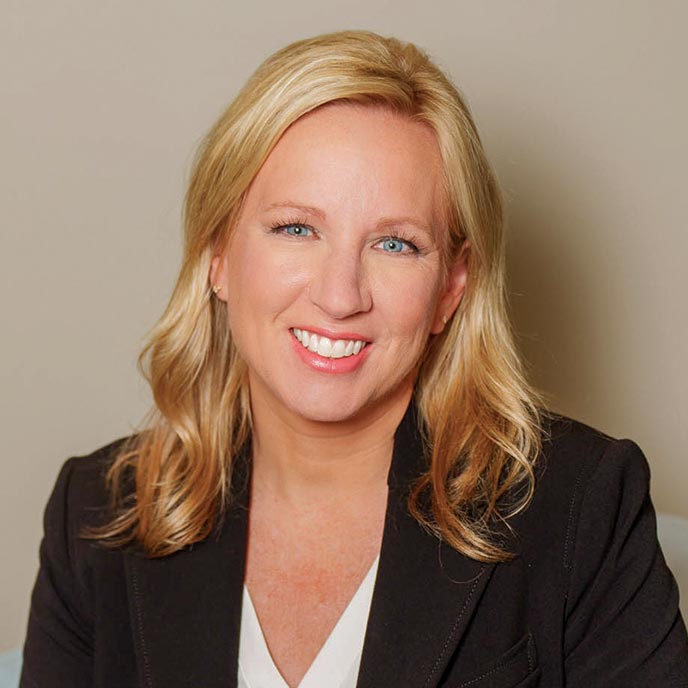
- President and CEO, Corewell Health, Michigan (formerly Spectrum Health) (2018–present).
- Executive vice president/chief operating officer, Spectrum Health (2017–2018).
- President, Spectrum Health Hospital Group (2014–2017).
- Senior vice president, chief strategy officer, Spectrum Health (2013–2014).
- And other Spectrum Health positions, beginning with a fellowship in 2002.
Tina Freese Decker knew early on she wanted to make healthcare simpler. She majored in finance as an undergraduate at Iowa State University, where her passion for math, science, and business helped her excel. She then entered a dual master’s program in health administration and industrial engineering at another university. Her education prepared her well for roles in healthcare finance, strategy, and operations – and her current role as president and CEO of Corewell Health in Michigan.
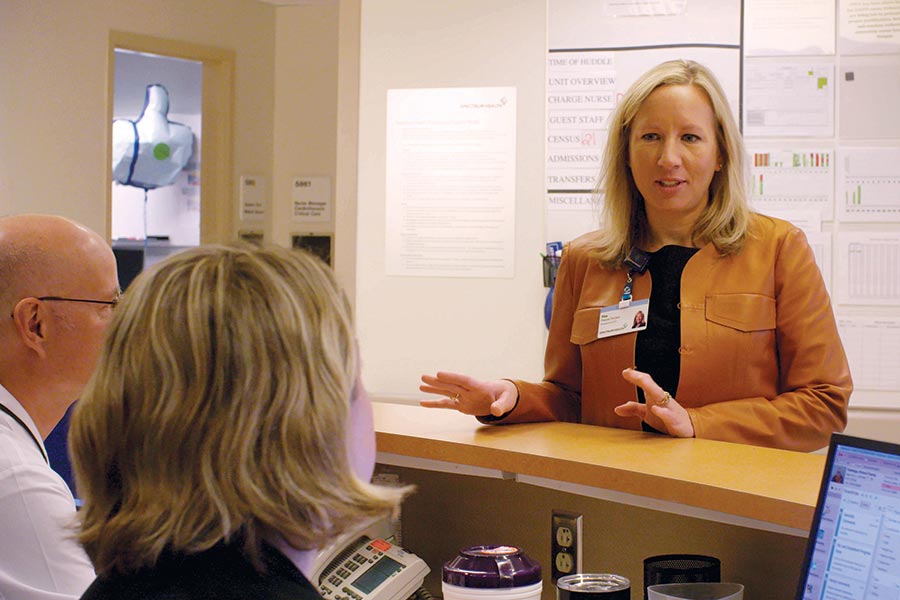
She recently led the integration of Spectrum Health and Beaumont Health to form Corewell Health, using her business experience to navigate the transition. Today, the $14.7 billion organization employs more than 60,000 people. Her collaborative, strategic, and visionary leadership has helped evolve her organization into the system it is today – leading with a bold vision of a future where health is simple, affordable, equitable, and exceptional.
Throughout her career, Freese Decker has seen positive connections between healthcare and business.
“Strong leaders in both business and healthcare are those who are driven by a mission to make things better,” Freese Decker said. “Healthcare is a fantastic place to learn and utilize skills in business and also have the connection to a purpose built on care and compassion.”
A solid education in business, one where she still relies on her courses in finance, strategy, supply chain, marketing, accounting, and other areas of specialization, helps Freese Decker approach things from a person-specific mindset. This includes how you care for a community, in a business mindset, how you make healthcare affordable, and how you make it sustainable, she said.
“Healthcare is one of the most regulated industries, so you have to take all of this complexity and be able to drive answers and solutions forward to help people be healthier. I think that’s one of the biggest competencies that a business degree gave me – the ability to simplify, to understand from a leadership perspective, and the strategic thinking that goes into growing programs and an organization while connecting people to work for the greater good,” said Freese Decker.
-
Ann Madden Rice (’79 Industrial Administration)
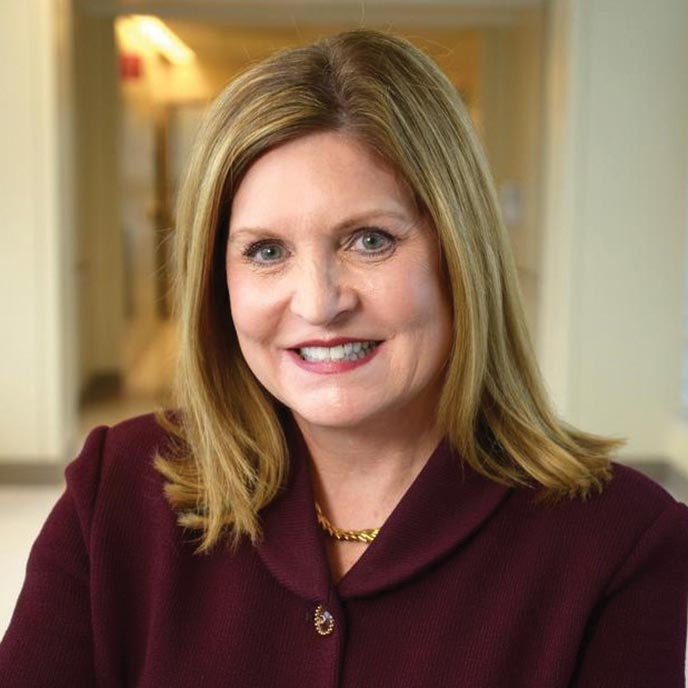
- Recently retired.
- Senior vice president, Allina Health, a Minneapolis, Minnesota, operator of hospitals and clinics (2018–2022).
- CEO, UC Davis Medical Center in Sacramento, California (2006–2018).
- The University of Iowa Hospitals and Clinics, Iowa City, Iowa (1999–2006).
- Vice president and chief financial officer, Mary Greeley Medical Center in Ames, Iowa (1996–1999).
“The links between healthcare and business are profound,” Rice said. “Since healthcare is highly regulated, it takes strong business acumen to make the services accessible to everyone. Healthcare margins are very thin due in part to the regulation. Healthcare changes quickly. The science of taking care of people changes. Every area of business training is used in healthcare, including accounting, supply chain, financial planning, investments, issuing bonds, auditing, human resources, and capital acquisition. Those are all essential in delivering healthcare. The budgets are large, often in the billions of dollars. There are many moving parts, so a strong business background is helpful.”
All of those roles connect to business programs offered at Ivy.
“One of the things that I think is really phenomenal is that Iowa State is so strong in supply chain and logistics, and that has emerged in healthcare as a major challenge. It isn’t just what we went through with COVID-19, but there are constant shortages in medical supplies and pharmaceuticals that go on all the time.”
She explained that issues within the supply chain have long been concerning to healthcare organizations.
“That emphasis will be important and make Ivy stand out as a great place for people to get their bachelor’s in healthcare management. The other piece that I think Ivy is particularly good at is the use of data analytics. More and more, we’re seeing that business decisions really need to be data-driven.”
Looking back, there are two things Rice sees as fundamental to her success in healthcare:
“In a field that constantly changes due to medical advances in society’s expectations, the ability to analyze challenges very quickly, sometimes without perfect information, and then collaborate across disciplines to find solutions, critical thinking skills are foundational. That is something I believe Ivy has emphasized across all of the majors.”
“Something that I think every Iowa Stater needs to understand about the history of the university, is that its roots are in really applying science and technology as a land-grant university to solve society’s problems and to improve the quality of life. That has also been a major focus of healthcare. How do we improve people’s lives? How do we help them with their suffering? How do we meet their emotional needs at sometimes the most difficult parts of their life, sometimes the end of their life? That kind of grounding in cherishing that role as a land-grant university, for me unexpectedly, helped me with that drive to provide the best in care to leverage science of technology to make people’s lives better.”
-
David Stark (’94 Management)
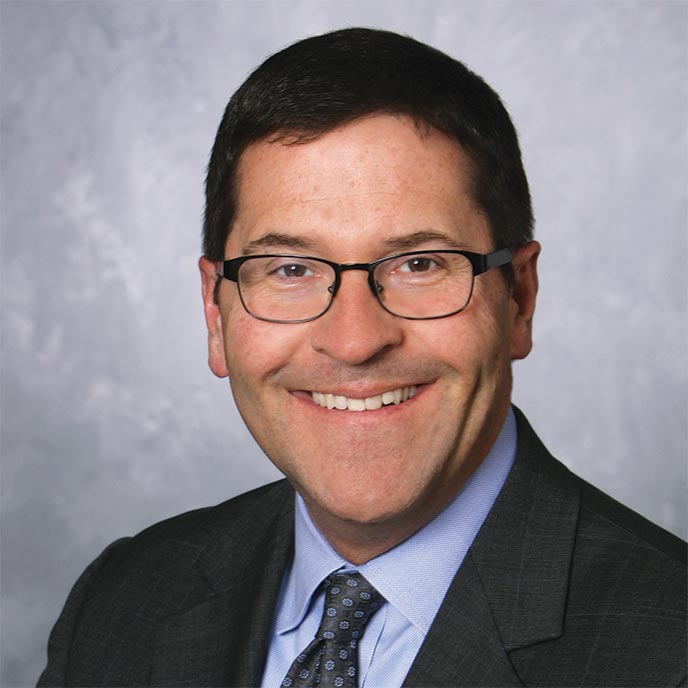
- President and CEO, UnityPoint Health, Des Moines, Iowa (2018–present).
- Began working at UnityPoint Health in 1996 (formerly known as Iowa Health System).
- Since that time, he has held multiple positions throughout the organization including chief operating officer at Iowa Lutheran Hospital; president and chief operating officer for Blank Children’s Hospital; and executive vice president and chief operating officer for UnityPoint Health – Des Moines.
Learning about the number of connections between healthcare and business has been surprising for David Stark.
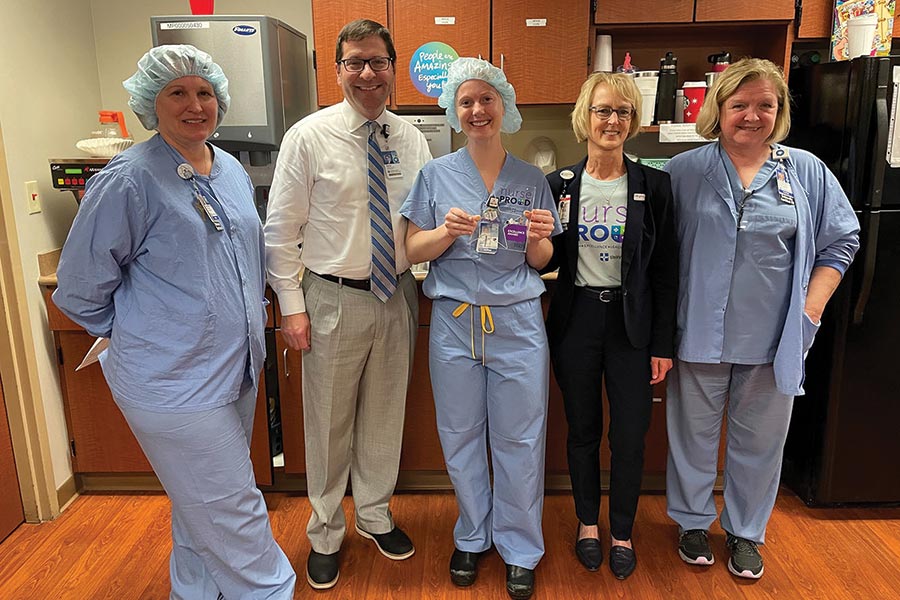
“The one thing that did surprise me was how linked they are,” he said. “I think about strategic planning principles, market share, operational metrics, financial performance, and human resources. The linkage is there. It’s just a different language than it would be in banking or insurance or in manufacturing. Manufacturing talks about widgets. We talk about patients.”
Stark’s management degree has been the perfect fit for his career in healthcare, he said.
“I think about what I do today, not just the management pieces, but how supply chain, data analytics, and statistical analysis are all used here. I absolutely still use those skills, including human resources, marketing, finance, accounting, and more. I use all of those things that were the foundational basis for my business degree today, and the management side was chief among them. It just is. It served me well.”
For future students who want to combine their interests in business and healthcare, the choice is clear.
“There are so many different jobs that most people don’t think about that are available in healthcare. The foundational pieces you will get in the business principles will serve you well in whatever field. Healthcare is one of the most promising current and future opportunities, and it has been an excellent nontraditional choice.”
-
Christi Shaw (’88 Marketing)
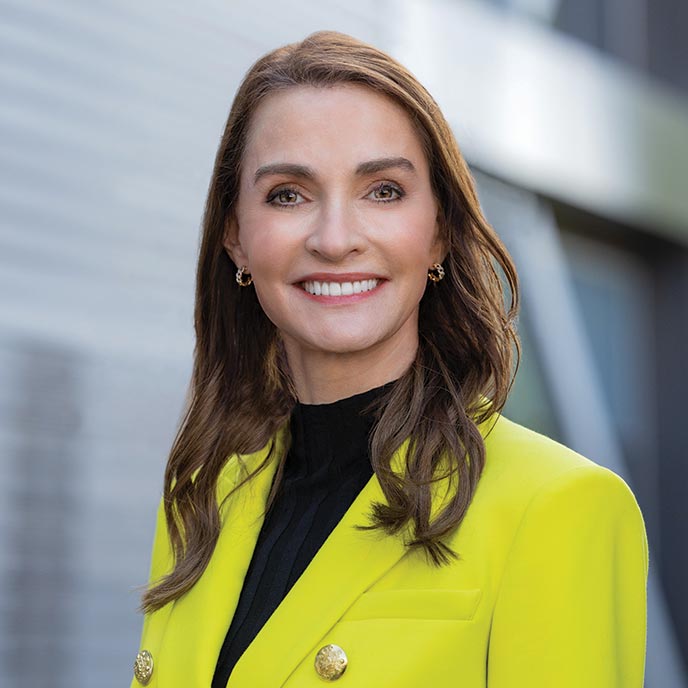
- CEO, Kite Pharma, cell therapy, a process of harnessing your own immune system to fight diseases (2019–2023).
- Senior vice president and president, Lilly Bio-Medicines, led Alzheimer’s, migraine, pain, immunology (2017–2019).
- U.S. head and president, Novartis Pharmaceuticals Corporation (2010–2016). Other positions include oncology (2010–2014), led general medicine, which included cardiology, dermatology, immunology, transplant, neuroscience (2014–2016).
- Johnson & Johnson, several positions: vice president, Ortho Women’s Health (2005–2006), and positions in sales, marketing with three divisions (2006–2010).
- Sales, marketing, and management positions, Eli Lilly and Company (1989–2002).
Christi Shaw has a unique perspective on the connections between business and healthcare. Her leadership has spanned a broad range of therapeutic areas, including oncology.
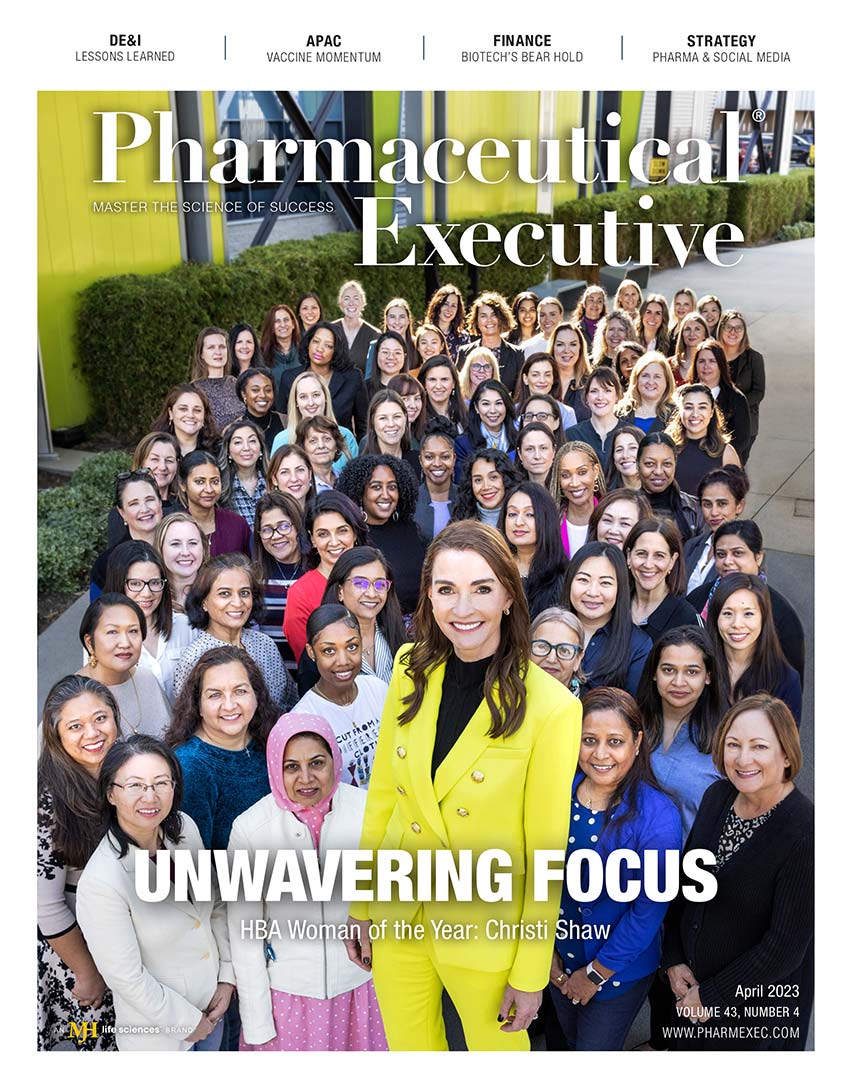
For her, it’s personal. With years of experience in leadership positions in the pharmaceutical and biotech industry, Shaw and her sister, Shelley, work tirelessly to help families impacted by cancer. The sisters lost their mother to cancer. In 2016, they founded the More Moments More Memories Foundation, a nonprofit organization that breaks financial barriers that exist between cancer patients and their best treatment.
Named Woman of the Year in 2023 by the Healthcare Businesswomen’s Association (HBA), Shaw recently completed her CEO position at Kite and moved her family from California to Florida. While she makes this transition and decides on her next career move, she continues to work with the family foundation, manages the family farms in northeast Iowa, and serves on the boards of directors of Avantor and the Healthcare Businesswomen’s Association (HBA).
Looking back at her experience in the pharmaceutical industry, she sees several connections to her business degree.
“Especially on the marketing side. In marketing, you search for the unmet need. You try to solve a problem and look at your customer’s motivation. Now, I look at the patient’s needs. That marketing piece of understanding that patient journey is how we can help patients more efficiently and effectively achieve better health outcomes.”
Her business degree has opened the door for Shaw to experience many aspects of healthcare.
“There is the business side of it,” she said. “There are many sides, such as accounting, financial, marketing, and sales, but there is also the research, the science, the innovation, and the patient care. It’s incredible how you feel when you come home every night knowing you work every day to make patient lives better.”
December 6, 2023

